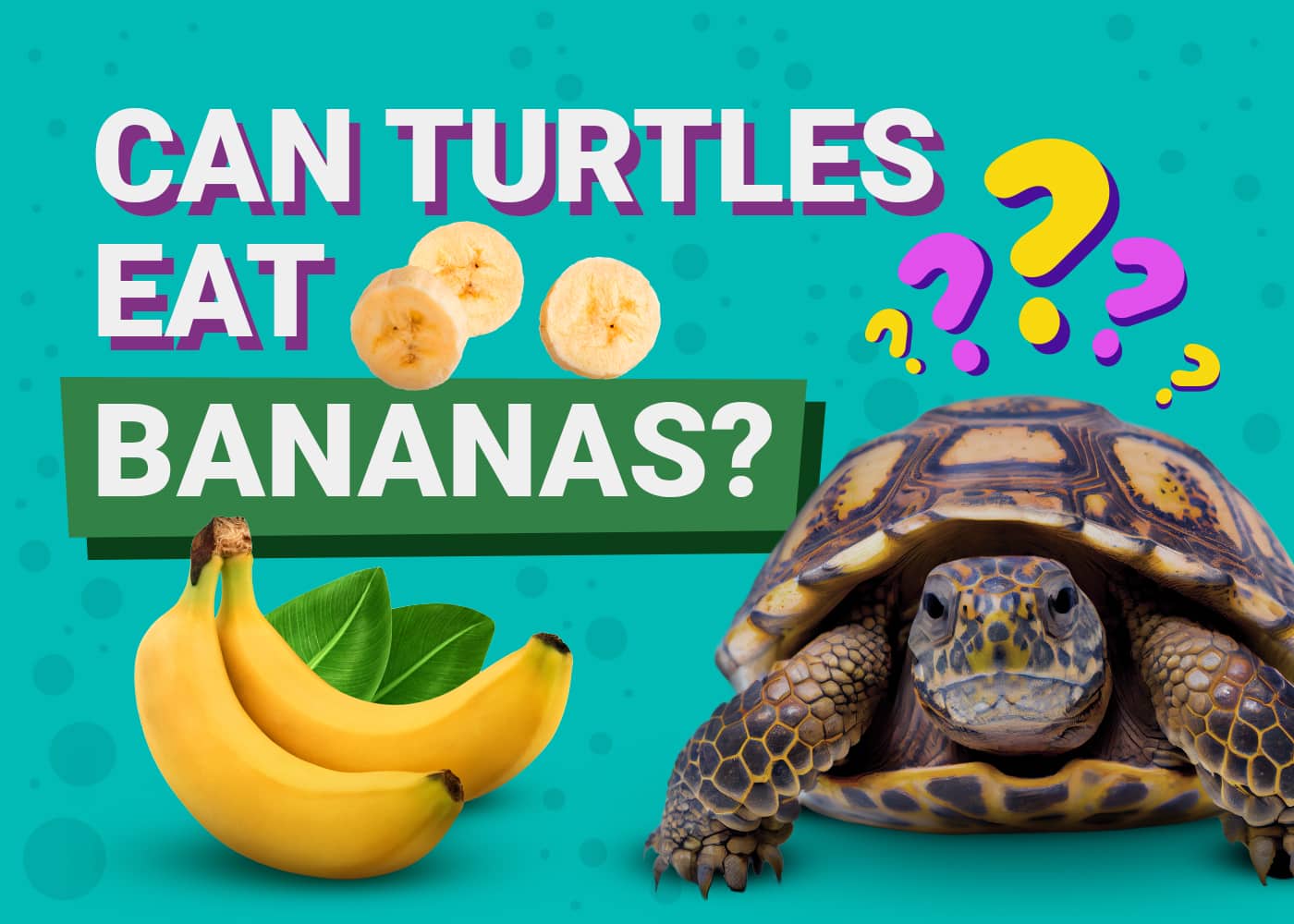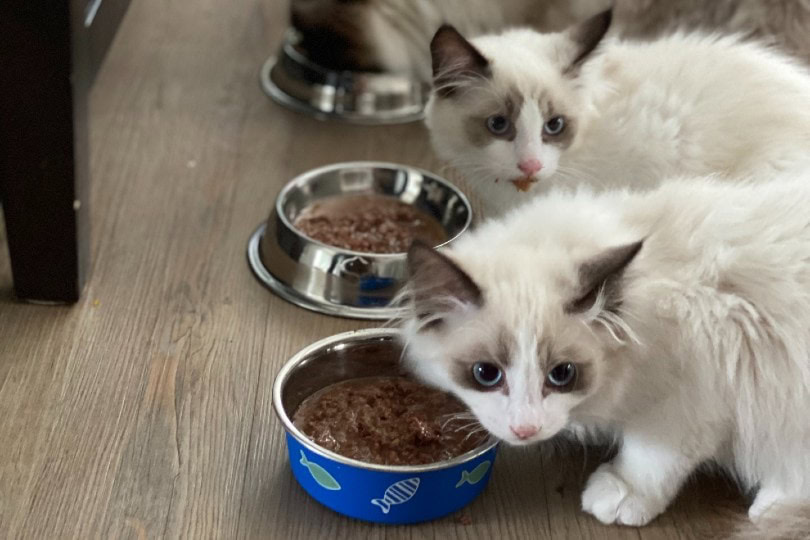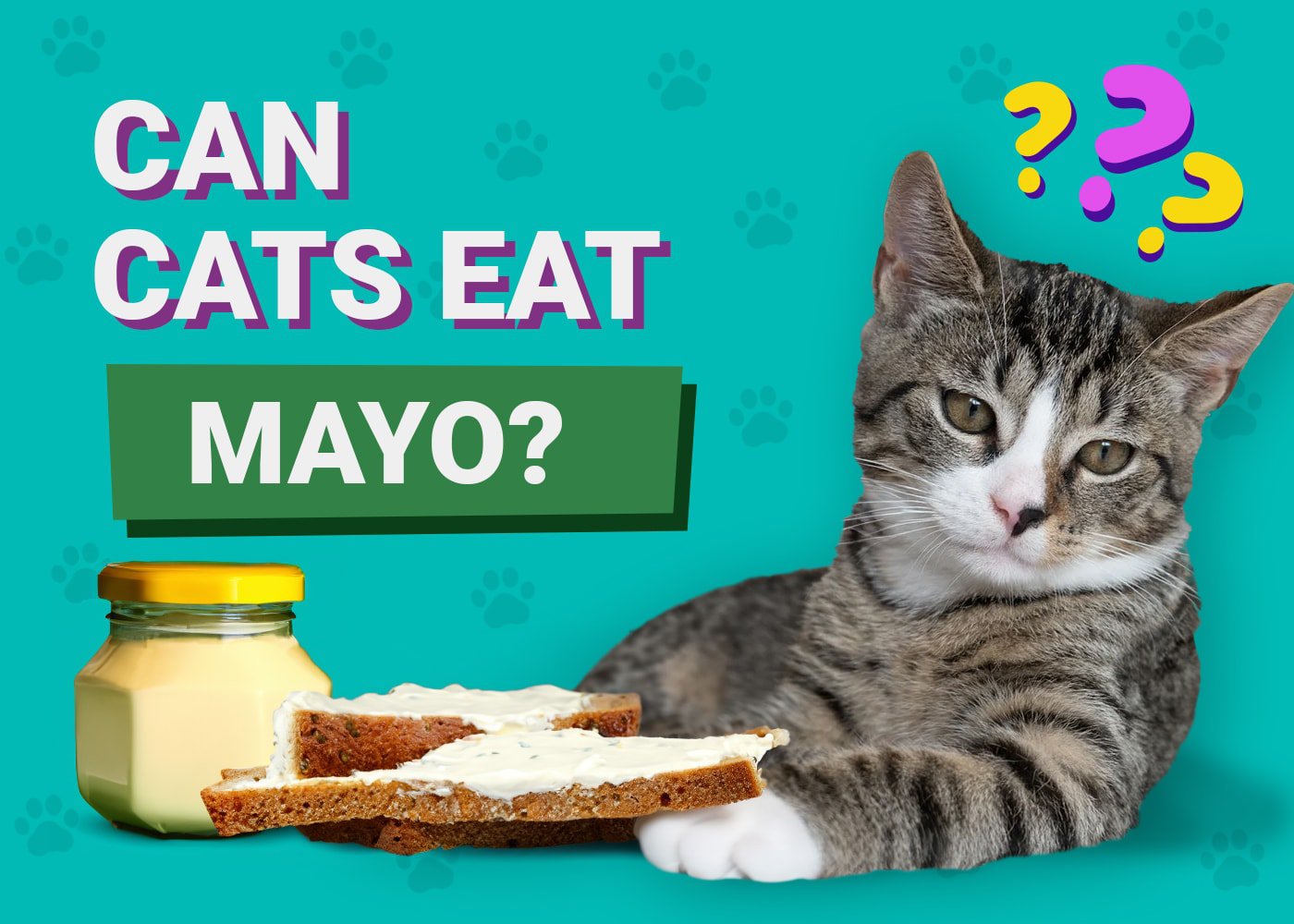VET APPROVED

The information is current and up-to-date in accordance with the latest veterinarian research.
Learn more »Click to Skip Ahead
Turtles come in many different sizes and colors, but one thing that every turtle has in common is a love of food. As a turtle owner, you want to make sure you feed your small friend only the best and most nutritious food to keep them healthy. So, as you prepare your turtle’s daily meals, what are good options to offer?
One food that you might consider feeding your turtle is a banana. Can turtles, including the ever-popular box turtle, eat bananas? Yes, bananas are safe for box turtles and other turtles, but they should only be fed in moderation.

Turtle Nutrition: The Basics
Unlike their tortoise cousins, which are primarily herbivores, turtles are mostly omnivores that need nutrition from both plant and animal sources.1 The ratio of plant to animal foods you should offer your pet will depend on the species of turtle, as well as their age and health. For example, a healthy box turtle often eats 50% plant-based foods and 50% animal-sourced foods.
Of the plant-based foods you feed your turtle, the majority should be vegetables rather than fruit like bananas. If given the choice, turtles—like many of us—would rather eat something other than vegetables. Fruit is not as nutritious as vegetables for turtles.
Feeding too much fruit can cause your turtle to fill up on sweet treats and fall behind on nutrition by neglecting to eat their vegetables!
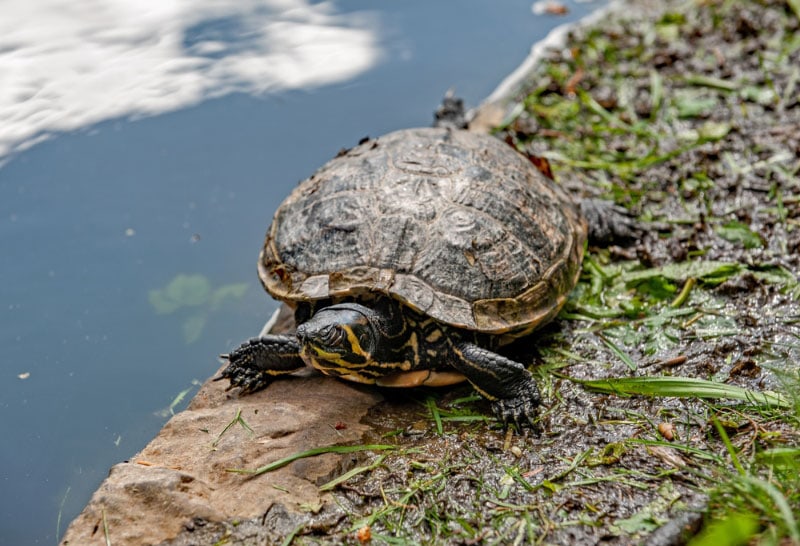
How to Feed Bananas to Turtles
To keep their enclosure as clean as possible, feed turtles in a shallow dish that can’t be overturned easily.
It’s a good idea to chop up better-tasting foods like bananas and mix them in with other, less delicious foods, such as vegetables. This makes it harder for the turtle to eat around the vegetables in favor of the bananas and other fruits.
Turtles can eat the entire banana, including the peel! So, if you own a turtle, you can do your part to eliminate food waste by feeding your banana peel to your turtle instead of throwing it in the trash.
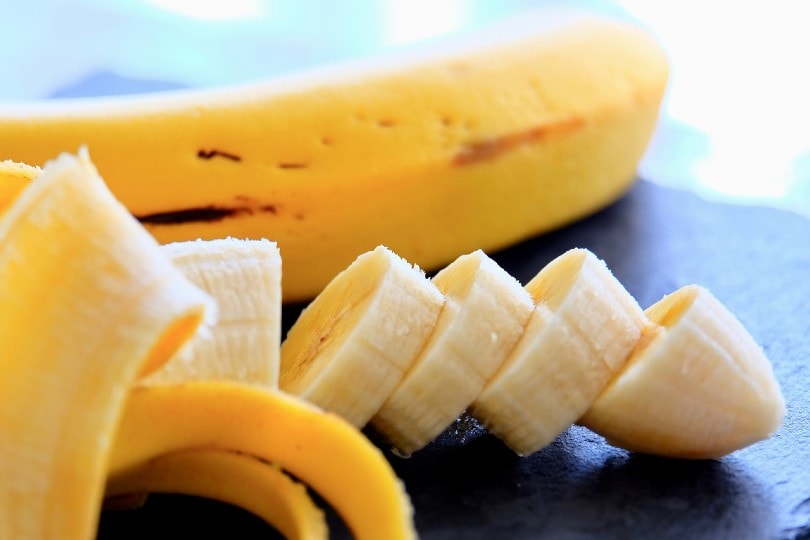
Other Plant Foods to Feed Your Turtle
Besides bananas, your turtle may enjoy a wide variety of plant-based food sources. Flowers, alfalfa hay, and various vegetables can all be offered. Dark, leafy greens, such as collards, kale, and dandelion greens, are the most nutritious vegetables and should make up the majority of the plant materials served.
Along with the dark greens, you can offer your turtle small amounts of other vegetables, such as carrots, cucumbers, or squash. Avoid feeding them light-green vegetables, such as iceberg lettuce, as these will fill up your turtle with little nutritional value to show for it.
Other fruits to offer besides bananas include berries, peaches, kiwis, and apples. Keep the ratio of fruits to vegetables heavily weighted toward vegetables as you meal prep for your pet. Wash all fruits and vegetables before serving. Turtles can eat vegetables either cooked or raw, but raw is generally the most nutritious for them.
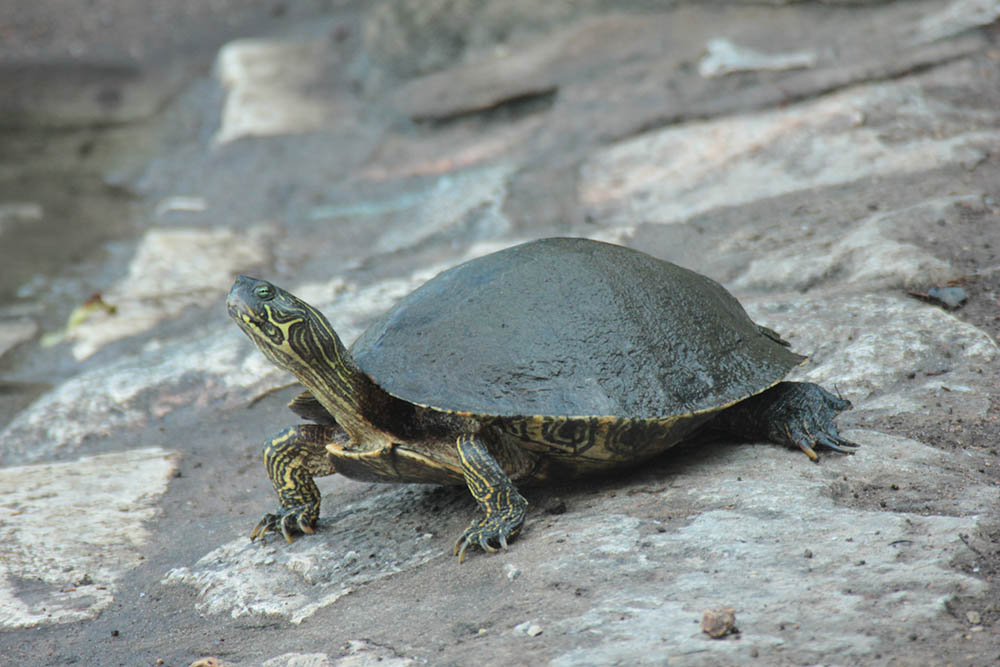
What About Animal-Based Foods?
It is a good idea to check with your veterinarian to determine how much animal-based foods you can feed to your turtle. If your veterinarian does suggest feeding animal foods to your pet, here are a few to consider:
- Mealworms
- Crickets
- Slugs
- Hard-boiled egg
A commercial turtle pellet food can also be a good source of nutrition – however, most commercial pellet formulations are not considered sufficient as a standalone dietary option for turtles.
Know that it’s not a good idea to catch bugs from your yard to feed to your pet. Wild insects may contain traces of pesticides or bug-killing chemicals that might be toxic. Purchase your turtle’s insect and worm meals from a pet store instead.
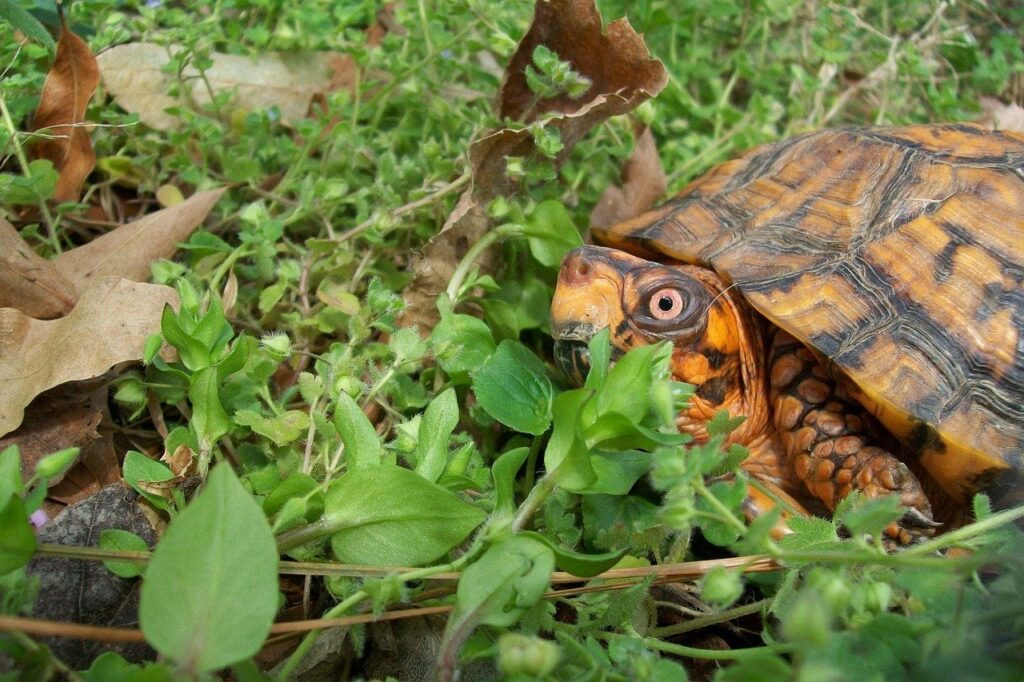
What Not to Feed Your Turtle
Besides wild-caught insects, what other foods should you avoid feeding to your turtle? For starters, they shouldn’t be fed human junk foods or snacks, even if they might enjoy them. Don’t feed your turtle raw meat or dairy products, such as yogurt or cheese.
Foods that are toxic to turtles and should never be fed include the following:
- Chocolate
- Avocado
- Tomato leaves or vines
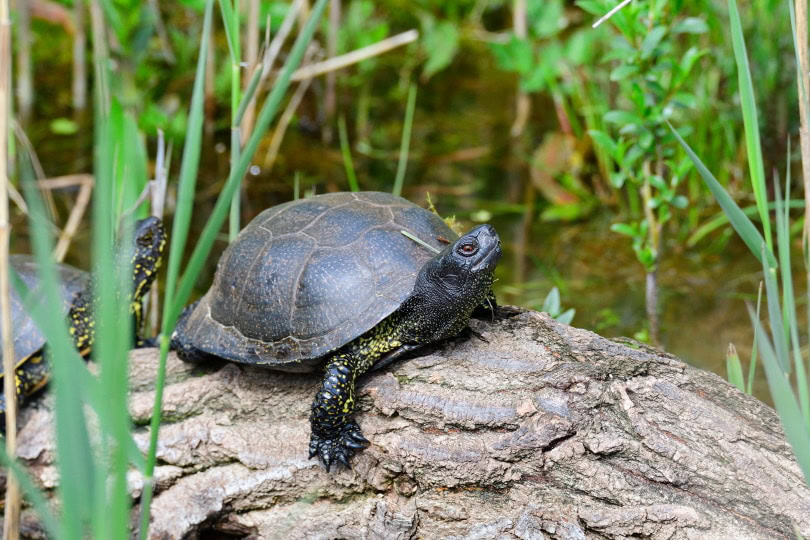
Do Turtles Need Any Supplements?
Ask your veterinarian what is best for your particular type of turtle. In many cases, it is recommended that turtles receive a regular calcium supplement and often, a multivitamin.
Don’t start giving your turtle any vitamins or other food additives without talking to your veterinarian first. Too much of a good thing definitely applies when it comes to turtles and vitamins. Over-supplementation can do more harm than good and even be toxic. In addition, you should not use human supplements for your turtle, as this can be very dangerous for them.
An often neglected “supplement” for most turtles is sunlight, which is extremely beneficial for them. They should be allowed to access sunlight whenever possible, as its benefits seem to exceed those offered by commercial UVA/UVB lamps.

Conclusion
Bananas can make sweet additions to your turtle’s diet. Just make sure your wily turtle doesn’t ignore their other, more nutritious foods as a result. Turtles, including box turtles, can make fun, easy-to-keep pets, but make sure you are ready for the responsibility of keeping your pet healthy and safe. Sometimes that means not letting them eat as many bananas as they might like!
Related Reads:
